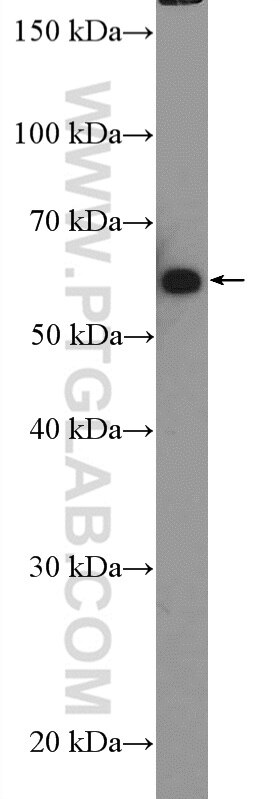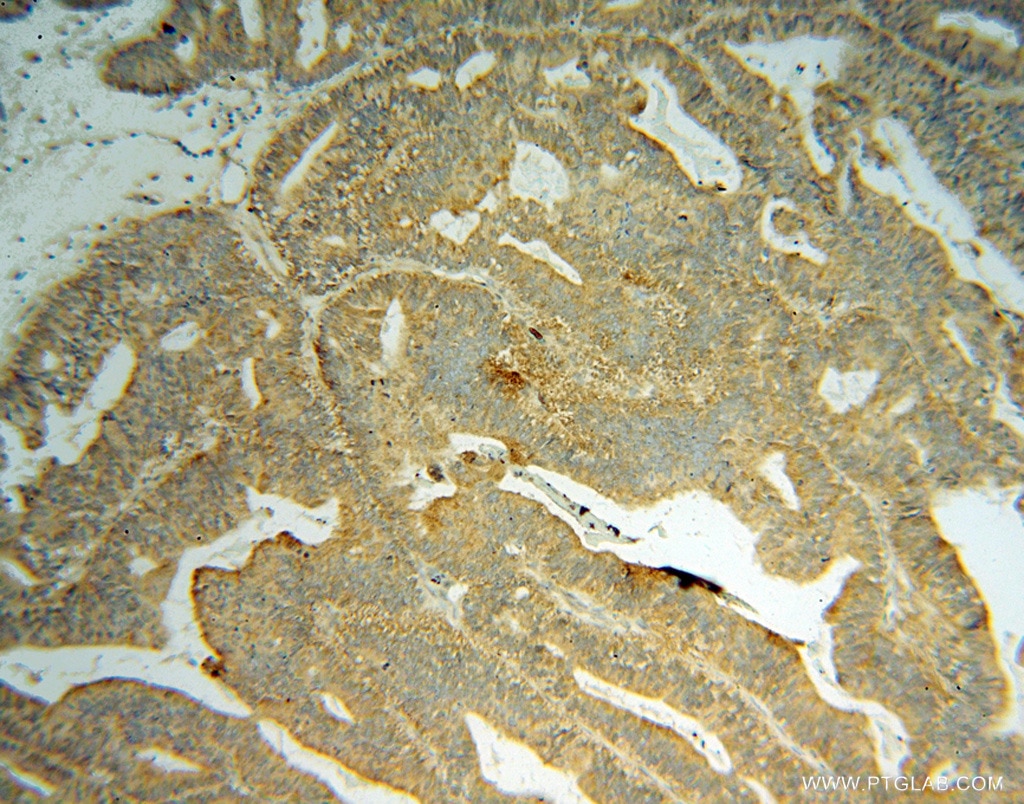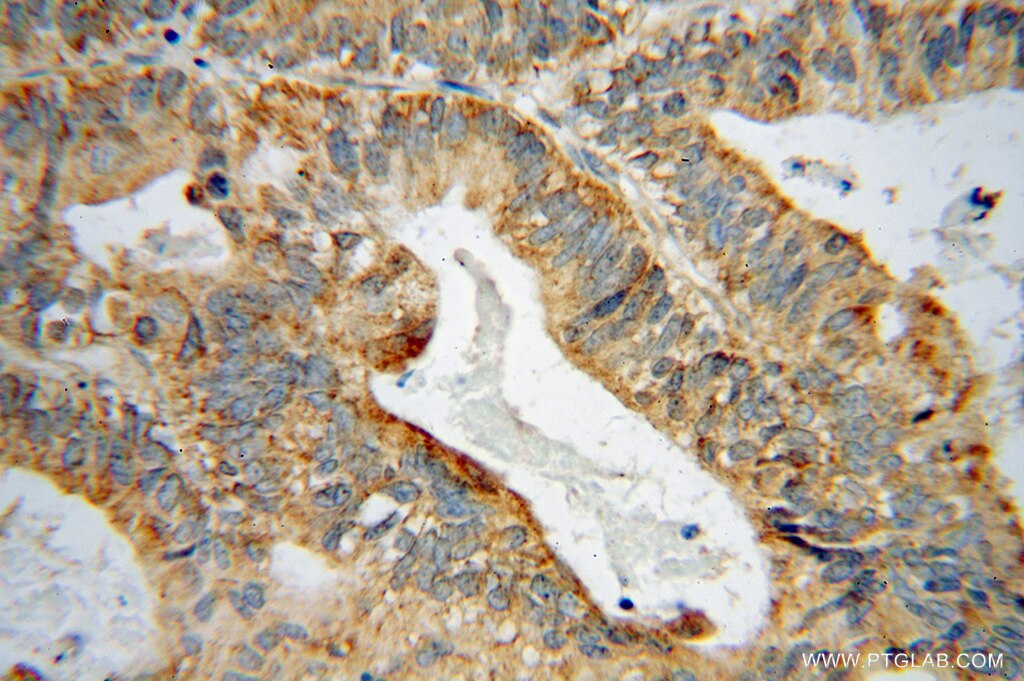GRB14 Polyclonal antibody
GRB14 Polyclonal Antibody for WB, IHC, ELISA
Host / Isotype
Rabbit / IgG
Reactivity
human, mouse, rat
Applications
WB, IHC, ELISA
Conjugate
Unconjugated
Cat no : 15298-1-AP
Synonyms
Validation Data Gallery
Tested Applications
| Positive WB detected in | DU 145 cells |
| Positive IHC detected in | human ovary tumor tissue Note: suggested antigen retrieval with TE buffer pH 9.0; (*) Alternatively, antigen retrieval may be performed with citrate buffer pH 6.0 |
Recommended dilution
| Application | Dilution |
|---|---|
| Western Blot (WB) | WB : 1:500-1:1000 |
| Immunohistochemistry (IHC) | IHC : 1:20-1:200 |
| It is recommended that this reagent should be titrated in each testing system to obtain optimal results. | |
| Sample-dependent, Check data in validation data gallery. | |
Product Information
15298-1-AP targets GRB14 in WB, IHC, ELISA applications and shows reactivity with human, mouse, rat samples.
| Tested Reactivity | human, mouse, rat |
| Host / Isotype | Rabbit / IgG |
| Class | Polyclonal |
| Type | Antibody |
| Immunogen | GRB14 fusion protein Ag7554 |
| Full Name | growth factor receptor-bound protein 14 |
| Calculated Molecular Weight | 61 kDa |
| Observed Molecular Weight | 61 kDa |
| GenBank Accession Number | BC053559 |
| Gene Symbol | GRB14 |
| Gene ID (NCBI) | 2888 |
| RRID | AB_2112892 |
| Conjugate | Unconjugated |
| Form | Liquid |
| Purification Method | Antigen affinity purification |
| Storage Buffer | PBS with 0.02% sodium azide and 50% glycerol pH 7.3. |
| Storage Conditions | Store at -20°C. Stable for one year after shipment. Aliquoting is unnecessary for -20oC storage. 20ul sizes contain 0.1% BSA. |
Background Information
GRB14 belongs to the GRB7/10/14 family. It is an adapter protein which modulates coupling of cell surface receptor kinases with specific signaling pathways. GRB14 is a target for a PDGF regulated serine kinase, an interaction that does not require PDGFR-GRB14 association. GRB14 is about 58-65kd in WB test.
Protocols
| Product Specific Protocols | |
|---|---|
| WB protocol for GRB14 antibody 15298-1-AP | Download protocol |
| IHC protocol for GRB14 antibody 15298-1-AP | Download protocol |
| Standard Protocols | |
|---|---|
| Click here to view our Standard Protocols |




